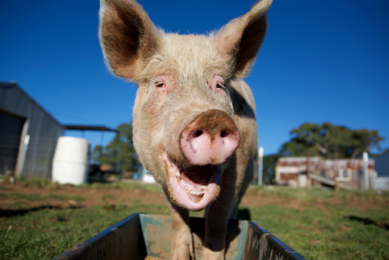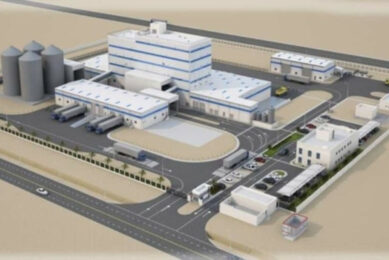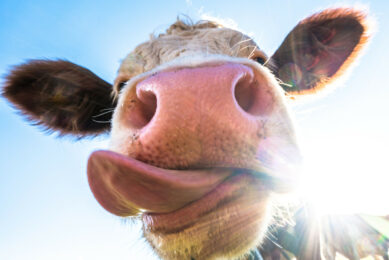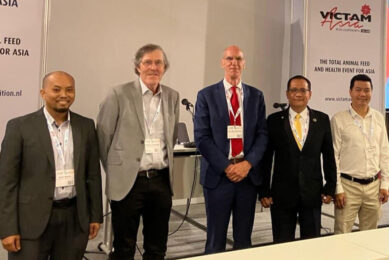French project to bring vegetable proteins to higher level
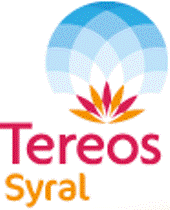
Tereos Syral launched the Improve-project during 2011 to exploit the full potential of vegetable proteins through future-oriented investments. This project has now been voted as the winner of the call for Shared Innovation Platform projects run by the Deposit and Consignment Fund (Caisse des Dépôts et Consignations).
Improve stands for Institut Mutualisé pour les PROtéines VEgétales (Shared Institute for Vegetable Proteins) and was set up for the creation of an innovation platform to harness the full value of vegetable proteins in the Picardy region in France.
The aim of the Improve platform is to develop applications for proteins from French and European crops (wheat, corn, rapeseed, pea, faba bean, lupine, alfalfa, potatoes, etc.) in their traditional sectors of human and animal nutrition, as well as in new applications such as materials (adhesives, resins and composites), bioplastics, paints and cosmetics. Given their size and composition, proteins are prime candidates for these new applications.
The vast majority of European agricultural crops, which account for a total of some 28 million tonnes of protein, are not used to their full potential.
In Europe, industrial innovation in this field is stagnating, and the research effort is not sufficient to meet the growing demand from the new markets in human and animal nutrition, biomaterials, cosmetics and chemicals.
Competency centre
Supported by the IAR (Industries and Agro-Resources) global competitiveness cluster and the Picardy Region in France, the project involves the creation of a competency centre dedicated to the extraction, processing and use of vegetable proteins.
Guided by common interests, this unique public/private partnership model brings together major French food processing companies (Tereos Syral, Siclaé, Sofiprotéol, Soufflet), and leading research and transfer facilities exploiting the full potential of plants (INRA, University of Picardie Jules Verne (UPJV) and the Recovery Centre for Carbohydrate and Natural Products (CVG)).
Each partner will thus be able to breathe life into research topics and bring its knowledge and skills to bear on efforts to overcome the scientific and technical hurdles.
The platform set up at Dury (Somme department) with UPJV’s support will help to achieve short research cycles and industrialisation times.
It will be managed by industrial companies operating at the intersection between the food, chemicals and energy sectors, which are striving to enhance the competitiveness of the French agro-processing industry and contribute to revitalising the country’s economic fabric.
The project has three priorities:
- agricultural and industrial development: Improve will in the future help to harness the full potential of European crops, boost the competitiveness of agriculture and the French agro-processing sector and develop new markets in growth sectors.
- creation of a competency centre: dedicated to harnessing the value of vegetable proteins and their derivatives, this facility projects annual revenues of €3 million via its proprietary research, collaborative research and services on behalf of corporate clients and French SMEs operating in the human and animal nutrition, materials, cosmetics and chemicals sectors.
- social: 20 or so highly qualified employees will be recruited to work on the platform for a project worth around €35 million in total.
Improve thus adds to French research facilities that are crucial for the development of bio-refineries and the bio-economy in France, neatly complementing the BRI (exploitation of the potential of carbohydrates via Siclaé), PIVERT (exploitation of the potential of lipids via Sofiprotéol) and OSIRIS (research of enzyme complexes produced by solid-state fermentation via Soufflet group) platforms.
The Improve platform is due to be launched in February 2013.
About the partners
Tereos is an agro-industrial cooperative specialising in the primary processing of beetroot, sugarcane and cereal grains. In 2011, Tereos, which has 39 production facilities and 26,500 employees, recorded revenues of €4.4 billion. Tereos Syral is the cereal processing subsidiary of cooperative group Tereos.
Siclaé originated in 2005 from the desire of five cooperatives from the North-East of France to pool their bio-based processing interests into a single entity and thus create and develop an international agro-industrial group, with regional roots, focused on arable crops. Siclaé employs 6,250 employees and posted 2010 revenues of €1.64 billion.
Set up in 1983 by representatives from the farming world, Sofiprotéol’s goal is to develop markets and harness the potential of French oilseed (rapeseed, sunflower) and plant protein (field pea) production. In 2010, Sofiprotéol recorded revenues of €5.6 billion, and it currently employs 6,400 staff.
Sofiprotéol has five complementary activities:
- seed crushing and oil refining (Saipol);
- the refining and packaging of edible oils (Lesieur);
- the production of biodiesel (Diester Industrie and Diester Industrie International);
- renewable chemistry (Oleon and Novance);
- animal nutrition and the slaughter and processing of pork, poultry and eggs (Glon Sanders).
The Soufflet Group, an expert in wheat and barley, is France’s top privately-held cereal collection company, with over three million tonnes of cereals collected in France and almost one million tonnes outside France. With 37 plants in France, across Europe and in Asia, the Soufflet Group is one of the leading players in the world malt market and one of Europe’s top millers.
During 2008, the Soufflet group launched Osiris, a €77 million R&D programme in biotechnologies focused on solid-state fermentation and its applications, especially in animal feed, bioethanol and the bioprotection of plants.
Founded in 1984, the Centre de Valorisation de Glucides et Produits Naturels (CVG), a certified agro-industrial technical institute and a member of the IAR competitiveness cluster, specialises in R&D in biochemicals, methods of harnessing the potential of plant biomass, green chemistry, fractioning/purification, enzymology, bioconversion and thermochemistry.
CVG’s pilot installations boast €11 million in equipment operated by 30 permanent staff, including an R&D team comprising five PhD holders and two engineers.
INRA (institute dedicated to agricultural studies), which has 8,532 permanent staff, 1,839 scientists and 2,572 engineers, is the leading agricultural research institute in Europe and second-largest in the world.
The UPJV is the leading research and higher education institution, with 23,000 students and 31 research teams. Through its chemistry and agricultural and environmental science departments, its focus is on green chemistry, agroresources and sustainable development–in line with the objectives of the Improve project.




